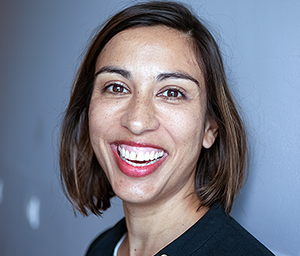Emma Fulu
Question: How can we change social norms to prevent violence against women and girls (VAWG)?
“We need to first understand the norms that we are trying to change, because they vary by context. Doing research to understand the norms and how they relate to violence and then what we have seen is we need to have a multi-sectoral, holistic approach and a long-term approach because changing norms is going to take time, as we will have to integrate the work on different levels. This is why we are working with individuals as well as with communities, structures and society influencers. and trying to integrate the work across sort of multiple levels. So that we are working with individuals, but we are also working with communities and structures and influences in society.”
“Then there is a lot of different strategies that we can employ and some that have been showing to be effective are things like whole school approaches, economic empowerment with gender transformation, and community mobilisation. There is some promising work around parenting interventions. So those kinds of things, if we integrate them into, ideally, a national framework, then that’s our most effective way.”
Question: Could you share with us a success story on social norm change that has contributed to end VAWG?
“I think one success story is around a programme that is being shared here today which is called SASA! in Uganda, which is a community mobilisation activist intervention and long-term approach. The latest emerging evidence from that, is a decrease in intimate partner violence that is being successful. I think another example is Stepping Stones, a programme based in South Africa, which is a kind of peer-to-peer education programme looking at preventing HIV, but has reduced intimate partner violence. The key success with these is that they are really skills-building, not just education and teaching. They are teaching people how to live a different social norm and promoting a positive alternative that had some success we can build upon.”
Question: What would you suggest to policy-makers to advance ending VAWG?
“I would suggest that it’s evidence-based and evidence-building. We don’t have all the answers yet, but we do know some things that work; and so to make sure that they use the evidence that we do have to inform the programming and the policies; and that they develop and then ensure that those programmes and policies are being implemented and are being monitored and evaluated, so we can keep learning about what is most effective and what isn’t, and to keep building the evidence.“
Question: Could you give me a call for action?
“Be holistic and measure change.”
About the expert
Emma Fulu
Position: Director of the Equality Institute and an independent researcher
